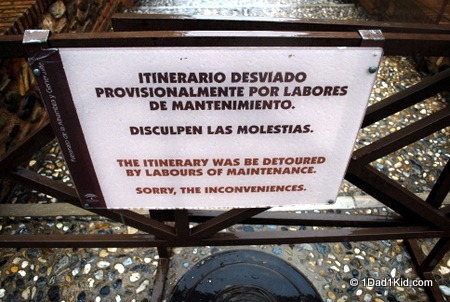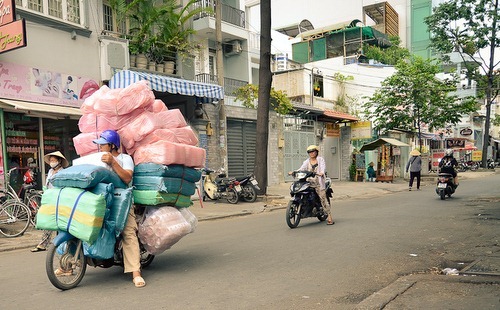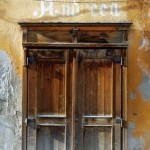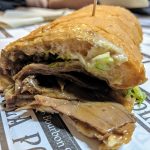I love languages. I think it’s fascinating and wonderful to be able to communicate with a wider variety of people. As a polyglot, I decided I loved language so much I should pursue a degree in linguistics, and it was my first major in university. Declaring a major is painful enough for a typical student, but when you have eclectic tastes, it’s even more complicated. My first day in my linguistics class, however, quickly showed me there is a big difference between loving languages and wanting to be a professional linguist. Linguistics as a science was way too uninteresting to me. I really just wanted to learn languages.
As we’ve been traveling for 2-1/2 years, we’ve naturally been exposed to several different kinds of language, some of which are supposedly English. Chatting with an Aussie and hearing about how her and her husband had a lot of barneys once quickly let me know that just because English is your native tongue doesn’t mean you actually speak the same English. We’ve picked up a lot of expressions from travel, and they’re now part of our vocabulary. And it’s pretty funny to see the look on some people’s faces when we use a British or Aussie term with a very American accent. Here are some of the things that have found their way into our normal usage.
- Bisgetti: When Tigger was 6, he really struggled with a lot of words. Some of them were quite cute, like lyberry for library, but the one that has stuck in our family vocabulary is bisgetti for spaghetti. It cemented its usage for us when we visited Cuba and discovered they use the same word. He was so excited to discover he had been simply speaking Cuban.
- Lollies: In Australia, we discovered this term for candy. It just sounds more fun than the American term, so now we use it regularly. Although, we won’t be substituting “candy floss” for cotton candy any time soon.
- Biscuits: I still prefer the term cookie since a biscuit is something quite different to me. Something that tastes exceptionally good with gravy on top. But, after spending a couple of months Down Under, I’ve caught myself referring to them as biscuits. I’m not sure Tigger even remembers what the American version of a biscuit is anymore.
- Rubbish: Like lift for elevator, this one wasn’t a surprise, but so many countries use this term for trash, that we’ve ended up adopting it as well.
- Wanker: This term cracks me up, but whenever I hear someone use it to describe another person I find it to be pretty descriptive. And from what I’ve been able to decipher as an amateur linguist, it’s even worse if you’re referred to as a tosser.
- Bollocks: I just love this term. Saying something is total bollocks just feels more powerful than saying “That sucks!”
- Cheers! For us Americans this is what you say to someone while drinking. Down Under it’s like saying “Thanks!”
- Same same: We first heard this in Thailand, but it’s also prevalent in other areas of southeast Asia. It cracks me up to hear it, and I find myself using it often now.
- Vietnam it: Sure, the dictionary says this is a noun only, but we’ve converted it into a verb. “Let’s vietnam it!” means to cross a busy street much like you’re playing a live game of Frogger. If you’ve never crossed a street in busy Hanoi or Saigon, you haven’t had true excitement yet.
Occasionally, there have been terms that initially confused me and haven’t made it into our normal vocab. Mostly they were courtesy of Aussie friends: A barney is an argument. If you dob someone, you’re turning them in as in telling on them. And if someone asks if you need a brellie, they’re offering you an umbrella.
All just part of the fun of travel.
Have you picked up any expressions from travel? What are some of the funniest ones you’ve heard?







August 30, 2013
Love this post – but I am an English teacher, so cannot help but love it! I taught high school English in Meopham, England for one year, and being a Canadian, my students were adamant at the beginning of our year that I would not be able to teach them English because I am Canadian, not English! Two of my favourites from that time are as follows: I use the word “pants” to mean what we wear on the outside of our underwear, but they use “pants” to mean literally, underpants – so I eventually began using their word, “trousers.” The phrase “aah, bless”, or simply “bless” was repeated often by many people when they thought someone was sweet or even if they felt sorry for someone – I’ll never forget that one, and “bless” really is a beautiful sentiment! From recent family travels and it is now part of our language – the Berber (first inhabitants of North Africa) peoples use the term “keef keef” to mean the same. We love saying “keef keef” – more interesting and playful than the same. I hope to read more comments on language use – so very interesting! Thank you Talon!
August 30, 2013
I wondered why Brits always call pants trousers. Interesting. I just love language. It’s so much fun!
August 30, 2013
We too discovered Lollies when we were in Melbourne – I love the word and I also learned Angel Floss is the word for cotton candy. Fun post! Oh, and of course – Bugger Off!
August 30, 2013
Interesting about angel floss. I only heard and saw candy floss for cotton candy.
August 30, 2013
In my neck of the woods in Canada, we also say candy floss instead of cotton candy.
August 28, 2013
Ha! love it. We’ve just been practicing ‘Vietnaming it’
August 29, 2013
Once you’ve been there, it’s totally accurate. I just say “We’re going to have to vietnam it,” and he knows precisely what we’re doing. lol
August 28, 2013
It’s brollie!! Brollie!!
This is hilarious, love it
August 29, 2013
Thanks for the correct spelling 😉